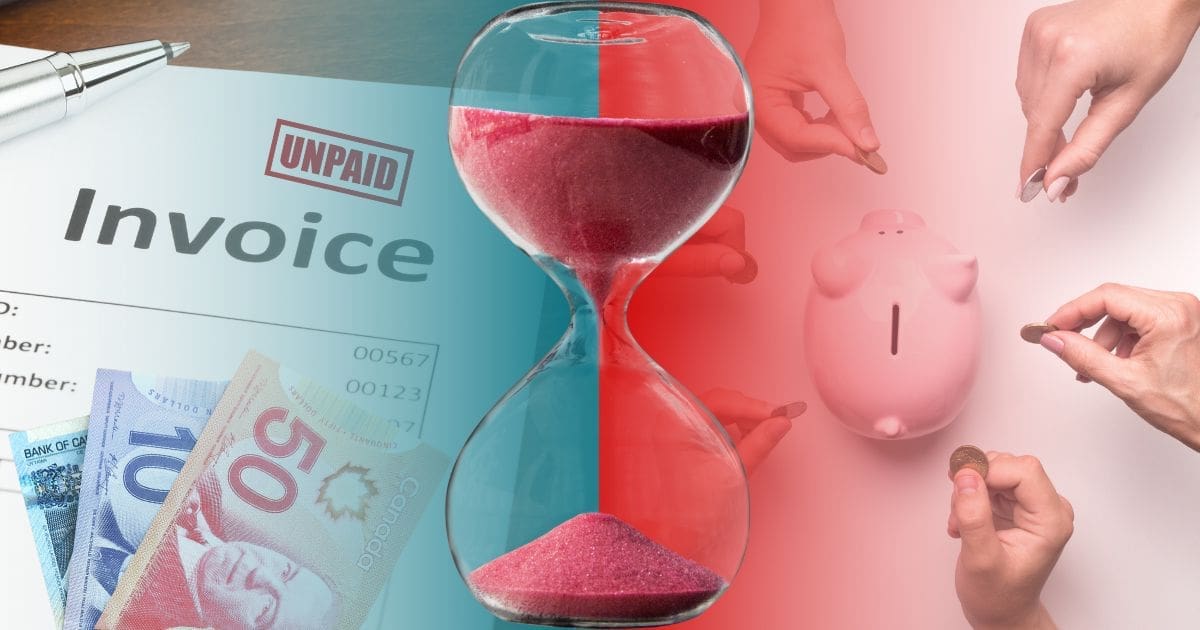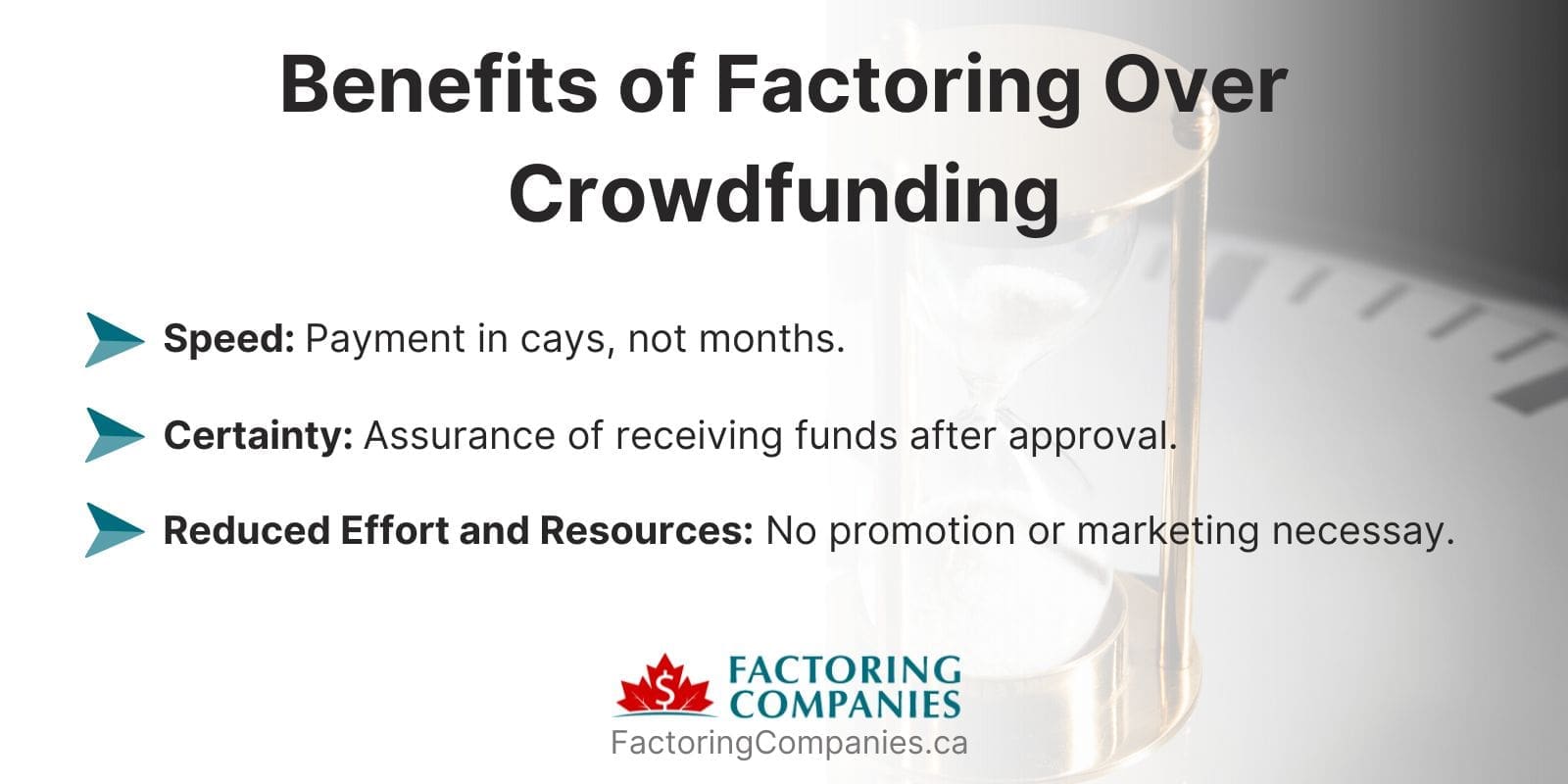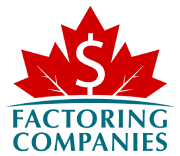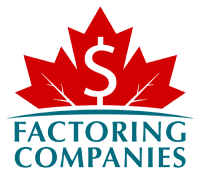
The clock is ticking, and your business needs cash—fast. Whether it’s seizing a new opportunity or navigating an unexpected crisis, the speed of funding is critical. Enter factoring and crowdfunding, two paths with different timelines. Which one will get you the cash when you need it most? On this page, you’ll learn about both options and compare factoring vs. crowdfunding to learn which one is best for your current needs.
Overview of Factoring and Crowdfunding
Before we get into factoring vs. crowdfunding, let’s start with a basic overview of how each one works.
How Factoring Works
The length of time it takes small businesses in Canada to get paid is on the rise and now takes an average of more than 31 days, Xero reports. Factoring, also known as invoice factoring, addresses cash flow concerns by eliminating this problem. It’s a financial solution where you sell your unpaid invoices to a factoring company at a discount. Here’s how it works:
- Invoice Issuance: You provide goods or services to your clients and issue invoices with payment terms that typically range from 30 to 90 days.
- Selling Invoices: Instead of waiting for your clients to pay, you sell these invoices to a factoring company. The factoring company pays you a significant portion of the invoice value upfront, usually around 60 to 95 percent.
- Client Payment: Your clients pay the factoring company directly, according to the original invoice terms.
- Final Settlement: Once the factoring company receives the full payment from your clients, they pay you the remaining balance, minus a small fee for their service.
This process gives you access to immediate cash flow without waiting for your clients to pay their invoices, which is crucial when maintaining and growing your business. Factoring is particularly beneficial for businesses that experience seasonal demand fluctuations or need consistent cash flow to manage daily operations.
In short, factoring helps you convert your receivables into working capital quickly, increasing your ability to invest in growth opportunities, cover operational expenses, and navigate cash flow gaps.
How Crowdfunding Works
Crowdfunding is a method of raising funds for a project, product, or business venture by collecting small amounts of money from a large number of people, typically via online platforms. Here’s how it works:
- Campaign Creation: You start by creating a campaign on a crowdfunding platform like Kickstarter, Indiegogo, or GoFundMe. You’ll need to set a funding goal and a deadline, and create compelling content that explains your project, its benefits, and why people should support it.
- Promotion: To attract backers, you’ll need to promote your campaign through social media, email newsletters, and other marketing channels. Engaging potential backers with updates, videos, and testimonials can help build interest and trust.
- Pledging: People who are interested in your project can pledge money. In return, you may offer rewards or incentives, such as early access to your product, exclusive merchandise, or other perks.
- Fund Collection: If you reach your funding goal by the deadline, the crowdfunding platform collects the pledged money from backers and transfers it to you, minus a small fee. If you don’t reach your goal, some platforms operate on an all-or-nothing model where you don’t receive any funds, while others allow you to keep whatever amount was pledged.
- Project Execution: Once you have the funds, you can proceed with your project, keeping your backers informed of progress and delivering any promised rewards.
Crowdfunding can be a powerful tool for validating market interest, engaging with your customer base, and raising the capital needed to launch new products or services. It’s especially popular among startups, creative projects, and innovative products. However, it requires significant effort in planning, marketing, and communication to succeed.
This method allows you to tap into a wide network of potential supporters, but it’s important to note that the process can be time-consuming and there’s no guarantee of success.
Why Speed is Crucial in Funding
Speed is a critical factor in funding, especially for small businesses. Let’s take a quick look at how the speed of funding impacts your business and why your funding options may differ when your business needs cash quickly.

The Importance of Quick Funding for Businesses
Unless you’re planning for a large capital expenditure like purchasing real estate, the clock is usually ticking when your business runs short on cash. Quick funding is essential for:
- Maintaining Cash Flow: Cash flow is the lifeblood of any business. Delays in receiving funds can hinder your ability to pay suppliers, meet payroll, and cover other operational expenses. Because of this, 82 percent of business failures are tied to cash flow, Preferred CFO reports. Quick funding ensures that your business remains operational and avoids disruptions.
- Seizing Opportunities: In the business world, opportunities often come unexpectedly and require swift action. Whether it’s purchasing inventory at a discount, expanding your operations, or investing in a marketing campaign, having immediate access to funds can be the difference between capitalizing on these opportunities or missing out.
- Managing Emergencies: Unforeseen events, such as equipment breakdowns or sudden market changes, can demand immediate financial responses. Quick access to funds allows you to address these issues promptly, minimizing potential negative impacts on your business.
- Staying Competitive: In highly competitive markets, the ability to respond quickly to changing conditions and customer demands is crucial. Fast funding enables you to stay agile and competitive, ensuring you can keep up with or outpace your competitors.
How Speed Affects Funding Choices
Each funding solution is unique, so the time they take to pay out can be very different. For instance, if you need to make payroll in two days, you need a funding solution that pays out within two days. Even a slight delay means your employees don’t get paid, which can have catastrophic consequences for your team and business. Let’s take a quick look at how long it takes to receive cash with a few funding solutions.
Factoring
Factoring is often favoured for its speed. Once you sell your invoices to a factoring company, you can receive up to 95 percent of the invoice value within 24 to 48 hours. Some factoring companies even pay out on the same day. This rapid access to cash flow can help you meet immediate financial needs without taking on debt or waiting for lengthy approval processes.
Crowdfunding
Crowdfunding, on the other hand, can be a slower process. Campaigns typically run for several weeks or months, and there’s no guarantee of reaching your funding goal. Even after a successful campaign, it may take additional time to collect the funds and put them to use. This delay can be a drawback if you need immediate funding to address urgent needs.
Traditional Loans
While traditional bank loans can provide substantial funding, the approval process is often lengthy, involving extensive paperwork, credit checks, and collateral evaluations. This can take weeks or even months, which is not ideal if you require quick access to funds.
Comparing Factoring and Crowdfunding Processes
Next, let’s take a deeper look at the processes of factoring and crowdfunding to compare how each method aligns with the need for quick funding and understand the challenges involved.
Factoring: Fast-Track to Funding
We’ll start with a breakdown of the factoring process and what to expect with each step along the way.
Step 1: Application and Approval
- Simple Process: Applying for factoring is straightforward. You typically need to provide your financial statements, invoices, and details about your customers.
- Quick Approval: Approval is swift and may even occur on the same day you apply, since the factoring company is more concerned with the creditworthiness of your customers than your own credit history.
Step 2: Invoice Submission
- Immediate Action: Once approved, you submit your invoices to the factoring company.
- Instant Verification: The factoring company verifies the invoices, usually within 24 to 48 hours. Some automate the process, which means they’re processed instantly.
Step 3: Funding
- Rapid Payment: After verification, you receive up to 95 percent of the invoice value almost immediately. This rapid access to funds usually occurs within 24 to 48 hours of submitting the invoices, though, again, some pay out on the same day.
- Continuous Cash Flow: As you continue to submit invoices, you maintain a steady cash flow, ensuring your business can operate smoothly and respond quickly to financial needs.
Step 4: Collection and Final Settlement
- Efficient Collections: The factoring company collects payments directly from your customers, freeing you from the collections process.
- Final Settlement: Once the customer pays the invoice, the factoring company releases the remaining balance to you, minus their fee.
The Crowdfunding Journey: Timeline and Challenges
Step 1: Campaign Creation
- Planning Phase: Creating a successful crowdfunding campaign requires significant planning. You need to develop a compelling story, create promotional materials, and set up your campaign page. This preparation can take several weeks or even months.
- Setting Goals and Rewards: You must set a funding goal and determine what rewards to offer backers, which involves strategic thinking and market research.
Step 2: Promotion
- Marketing Efforts: Promoting your campaign is crucial and can be time-consuming. You’ll need to leverage social media, email marketing, and possibly paid advertisements to reach potential backers.
- Engagement: Keeping backers engaged with updates, responding to comments, and maintaining momentum throughout the campaign is essential for success.
Step 3: Fundraising Period
- Extended Timeline: Crowdfunding campaigns typically run for 30 to 60 days. During this time, you need to continually attract and motivate backers to reach your funding goal.
- Uncertainty: There’s always the risk that you might not reach your funding goal. Many platforms operate on an all-or-nothing model, meaning if you don’t hit your target, you won’t receive any funds.
Step 4: Post-Campaign
- Fund Collection: If your campaign is successful, collecting the funds from backers and receiving the money from the platform can take additional time, sometimes several weeks.
- Project Execution: You then need to use the funds to complete your project and deliver any promised rewards, which can add further delays.
Benefits of Factoring Over Crowdfunding
Factoring is often the better solution for businesses. We’ll explore some of the reasons for this below.

Speed
Factoring is clearly the faster route to obtaining funds. From application to receiving cash, the process can be completed in a matter of days, providing you with immediate liquidity. In contrast, crowdfunding can take several months from planning to fund disbursement.
Certainty
Factoring offers more certainty. Once approved, you’re assured of receiving funds based on your invoices. Crowdfunding, however, carries the risk of not meeting your funding goal, leaving you without the necessary capital.
Effort and Resources
Factoring requires less ongoing effort compared to crowdfunding. Crowdfunding demands continuous promotion, engagement, and marketing efforts, which can be resource-intensive.
Get Funded Faster with Factoring
Factoring is often the better solution because it provides immediate cash flow by converting unpaid invoices into working capital within days, ensuring your business can seize opportunities and maintain smooth operations. Factoring Companies Canada can connect you with the right factoring partner who understands your specific needs, offering fast funding and competitive rates tailored to your business. To take the next step towards securing your business’s financial future, request a complimentary factoring quote today.
Factoring vs. Crowdfunding FAQs
How does quick funding: factoring vs. crowdfunding compare?
When comparing funding speed, factoring stands out as it offers quick funding by allowing businesses to access cash tied up in invoices almost instantly. Crowdfunding, on the other hand, involves a lengthier process of campaign creation, promotion, and fund collection.
What are the advantages of factoring for fast financing?
The advantages of factoring for fast financing include immediate cash flow, no need for long approval processes, and the ability to maintain smooth operations. This efficiency in funding makes factoring an ideal solution for businesses needing rapid access to capital.
Why should I choose factoring over crowdfunding for quick capital?
Crowdfunding vs. factoring for quick capital reveals that factoring is the superior choice for rapid funding solutions. Factoring companies provide upfront payments on invoices, ensuring your business has the necessary funds without the extended wait times associated with crowdfunding.
How do factoring and crowdfunding compare in terms of efficiency in funding?
In terms of efficiency in funding, factoring is more reliable and faster. Factoring companies handle the collection of invoice payments, allowing you to focus on your business operations. Crowdfunding requires ongoing marketing efforts and engagement, which can be resource-intensive.
What is the speed factor in business funding options like factoring and crowdfunding?
The speed factor in business funding options highlights that factoring offers quicker access to funds by advancing cash based on your invoices. In contrast, crowdfunding involves multiple stages that can delay the availability of funds, making factoring the better choice for immediate needs.
Which is faster financing: crowdfunding or factoring?
Factoring's edge in quick funding is evident as it provides almost immediate cash flow by purchasing your invoices. Crowdfunding, while beneficial for community engagement and validation, typically takes much longer to secure the required funds.
Why is factoring considered a rapid funding solution compared to crowdfunding?
Factoring is considered a rapid funding solution because it converts your outstanding invoices into cash within days. This immediate availability of funds is crucial for businesses that need to respond quickly to opportunities and challenges, unlike the extended timelines of crowdfunding.
How does comparing funding speed: factoring and crowdfunding help in choosing the right option?
Comparing funding speed: factoring and crowdfunding helps you understand that factoring is designed for fast access to capital, making it ideal for businesses needing immediate liquidity. Crowdfunding may be better suited for projects that can afford a longer fundraising period.
What are the rapid funding solutions: factoring and crowdfunding?
Rapid funding solutions like factoring and crowdfunding offer different timelines for accessing capital. Factoring provides immediate cash flow by converting unpaid invoices into working capital within days. In contrast, crowdfunding typically takes several weeks or months to raise funds, making factoring the quicker option for immediate financial needs.
What is invoice factoring and how does it work?
Invoice factoring is a financial process where businesses sell their unpaid invoices to a factoring company in exchange for immediate cash. The factoring company pays a significant portion of the invoice value upfront and collects the payment directly from the customers, providing businesses with quick access to working capital.
How does crowdfunding differ from traditional business loans?
Crowdfunding differs from traditional business loans in that it involves raising small amounts of money from a large number of people, typically via online platforms. Unlike loans, crowdfunding does not require repayment of funds but may involve offering rewards or equity to backers.
What are the typical fees associated with factoring services?
The typical fees associated with factoring services include a percentage of the invoice value, usually ranging from one to five percent, depending on factors like the creditworthiness of your customers and the volume of invoices. Some companies may also charge additional fees for services like credit checks and collections.
Can startups benefit from invoice factoring?
Yes, startups can benefit from invoice factoring as it provides immediate cash flow without requiring a lengthy credit history or collateral. This can be particularly helpful for new businesses needing to manage operational expenses and invest in growth opportunities while waiting for customer payments.
What are the risks of using crowdfunding for business financing?
The risks of using crowdfunding for business financing include the possibility of not reaching your funding goal, which can result in receiving no funds or less than needed. Additionally, the process requires significant time and effort in marketing and engaging with backers, and there may be pressure to deliver promised rewards or equity.

About Factoring Companies Canada
Related Articles
Get an instant factoring estimate
Factoring results estimation is based on the total dollar value of your invoices.
The actual rates may differ.
CLAIM YOUR FREE FACTORING QUOTE TODAY!
PREFER TO TALK?
You can reach us at
1-866-477-1778
Get an instant factoring estimate
Factoring results estimation is based on the total dollar value of your invoices.
The actual rates may differ.
CLAIM YOUR FREE FACTORING QUOTE TODAY!
PREFER TO TALK? You can reach us at 1-866-477-1778









